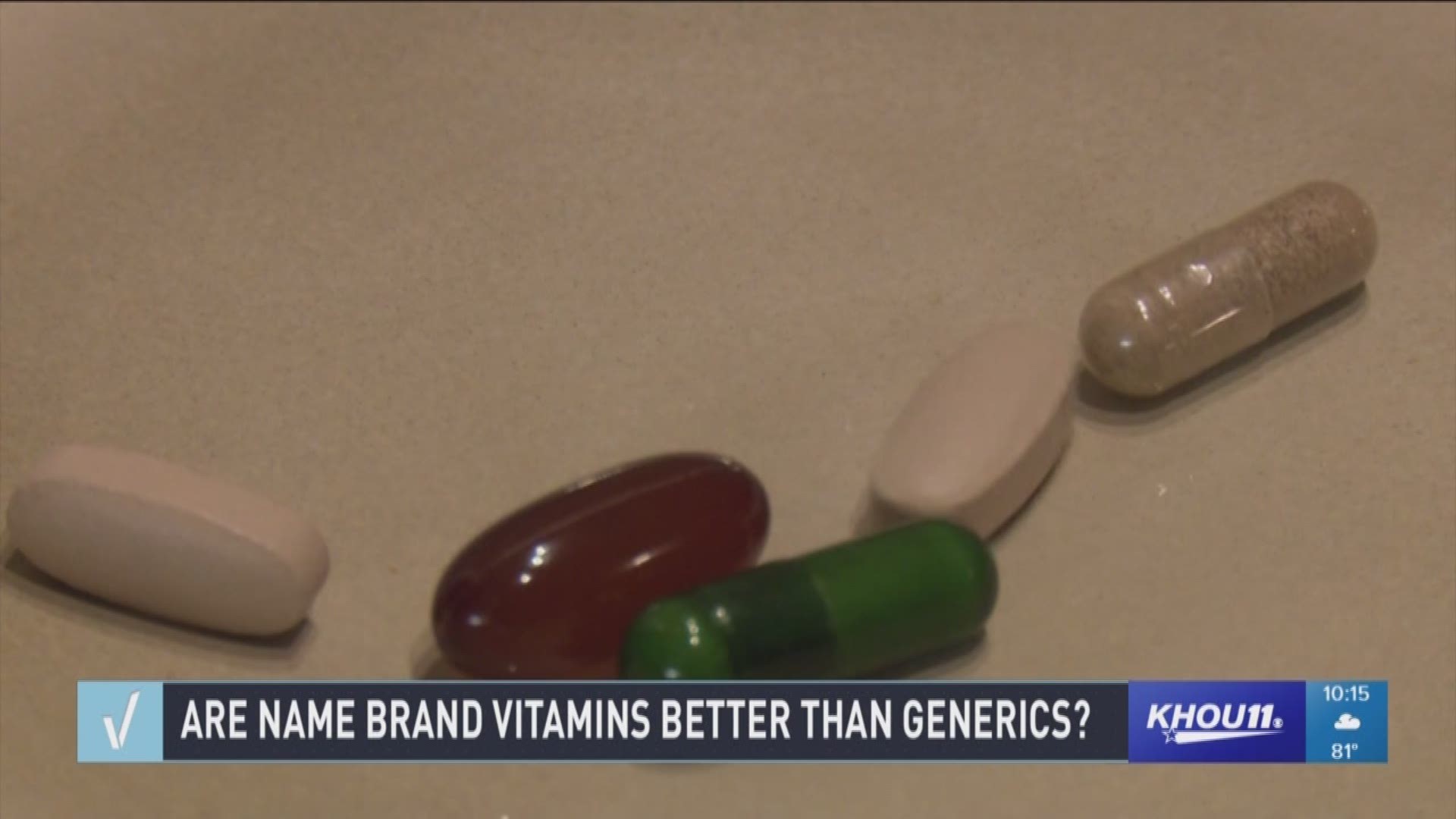WFAA - Vitamins come in all forms, at very different prices, and promise different things.
“You see them for everything, to boost your memory, to health to prevent heart attacks, etc. But the science is still to be determined," said dietitian Caroline Susie.
Unlike luxury cars or designer clothes, Susie says the bigger the name or price tag doesn't mean you are getting a better quality vitamin.
“I don't feel that prices, like wine, you spend more you get a better product and I don't think that is applicable to this field," she said.
FDA-approved foods have a nutrition label, but the unregulated industry of vitamins and supplements has a supplement label.
“You have to remember you are putting this in your body, and it hasn't been tested. Anyone can put on the label what they want to put on the shelf, and it is free pickings from there," Susie said.
- Problems with 46% of multivitamins
- 80% of gummy vitamins failed
- Some tablet vitamins failed to break apart
We also checked the website Consumer Lab, a third party vitamin tester. They found problems with 46 percent of the vitamins they tested, including higher or lower vitamin content than what was listed on the label.
Eighty percent of gummy vitamins actually failed testing, and some tablet vitamins would don't ever break apart, meaning you don't absorb the minerals.
So we can verify, no name-brand vitamins are not more beneficial than generic ones. As with most things you do to your body, you should check with your doctor.
“Lab tests will show if you are deficient in any of these key vitamins or mineral and from there your doctor will prescribe a supplement," Susie said.
VERIFY: Sources
Caroline Susie, dietitian

